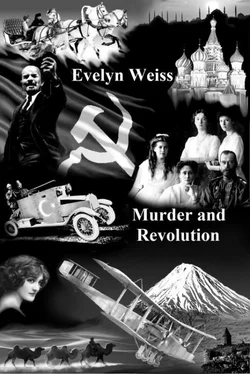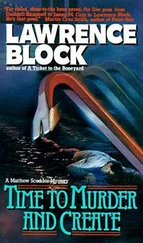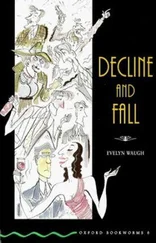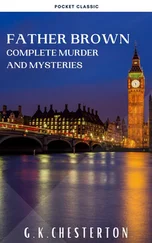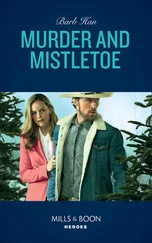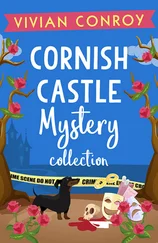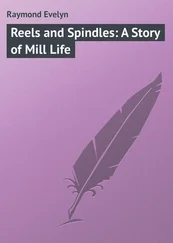But the armored car is behind us. Its angular shape grows with frightening speed. I see a soldier standing, his hands on the gun. The first shot is fired.
A hole appears in the cab, just behind my head. I’ve no time to think, but Axelson shouts. “Their shooting is very accurate—”
A second bullet has holed the engine. Oil and water spray out onto the windshield.
Yuri swings the wheel violently to the right; we’re thrown across the cab, as I hear his voice “There’s no cover out here at all. A fairground shooting gallery.”
Axelson manages an answer. “So you’re trying to dodge them?…”
“No.”
The whole truck bounces and rattles as if a giant is shaking it. I can barely see ahead through the oil-spattered windshield. There are a few more bumps and bangs, then everything around us goes dark.
“Headlamps still work!” shouts Yuri.
The professor peers out. “A lava tube!”
“Yes. I don’t know how far we’ll get, but it’s better than being a sitting target out on the lava flow.”
In the light of the headlamps, a tunnel of black rock stretches ahead of us, smooth-walled and flat-floored. Axelson shouts. “Be ready to brake, Captain. The lava tube may come to a dead end at any moment.”
Our engine roar reverberates through the tube, but we’re not the only ones. There’s the higher, sharper note of the armored car’s engine; and we’re lit by the beams of their headlamps. Yuri glances back. “Their vehicle will handle this place better than ours. But the twists of the tunnel make it harder for them to shoot at us.”
The car’s closer now; we’re lit starkly in the beams of its lamps. The tunnel starts to dip, then runs downwards; gravity’s pulling us. We hurtle along as if on a rollercoaster. But despite the slope, the tunnel is now dead straight. I take one last glance behind us. The soldier is hunched, ready to shoot. He fires.
The rear of our truck erupts in crackling flames: a wave of heat hits me. I can smell my hair scorching.
“Yuri – the gasoline tank?”
“We’d be dead if it was. It’s just the canvas covering on fire. But it may ignite the gasoline—”
My head lurches forward, striking the windshield like a hammer with the momentum of a sudden stop.
Yuri is down from the cab already, pulling me out of my seat, dragging me away from the flames just as he did long ago… the professor clambers down. We’re running down the tunnel into blackness. Behind us there’s a massive blast of fire. Exploding fragments of the truck fly at us; my back, my legs are hit by debris, like bullets.
But Yuri’s grinning.
“I braked. We stopped so suddenly that the armored car will have crashed into the back of the truck.”
We stagger along down the tube, away from the blazing wreckage. Ahead, I can see a tiny disk of light in the dark. After a few more stumbles in the blackness, the tube levels out and becomes wider. Shafts of sunlight descend, like a white veil, across the mouth of the tunnel. Suddenly, we’re standing in a gaping opening, as if under the arched door of a church.
Ahead of us, beyond a tumble of black stones, is a small stream. Axelson breathes heavily. It’s the biggest sigh of relief I’ve ever heard.
“That stream is the border.”
We pick our way through the rocks to the water. A few yards before we reach the stream, I look down at my feet. I’m walking on lush green grass. Along the water’s edge, there are shrubs and bushes, and the grass is spangled here and there with flowers. I step into the water, not bothering to keep my oil-stained shoes dry; the water is deliciously cooling, and crystal clear. My feet are on rippled sand, just a few inches below the surface. But here and there I see deep, rocky pools. Fish move lazily in the depths.
We all stand on the sand in the stream, looking back to the lava tube. From here it appears nothing more than a black hole in a wall of rock. But I smell burning, drifting out from the cavern. Yuri too sniffs the air.
“They won’t be coming after us. We may as well rest for a few moments, and drink some water. Filtered through lava beds for purity: you could probably bottle this and sell it.”
I drink, and never has anything in my life tasted so good. Then I splash my face, again and again. Upstream, I hear the leaves of the bush rustling; it’s a bird, hopping from branch to branch. It begins to sing.
The far side of the stream is steep and rocky, a kind of low cliff, like a wall defending the border of Iran. We wander, our minds blank with the knowledge of our escape, up the bed of the stream. Then Yuri points.
“Look. It’s like stairs.”
Above a deep pool in the stream, someone has laid flat stones, a series of steps going up the far bank, almost as if a fisherman has built his own private staircase up from the pool. But for us, it allows us to easily climb the far bank, onto Iranian soil. As we ascend the staircase of slabs, we see the Persian Road again; the steps join onto it.
As if to reassure us that our escape is actually real, a large boulder stands at the side of the road. It’s chiselled with carved, curved lettering. Axelson laughs with joy.
“It’s Persian script. I think it says ‘Welcome to Iran.’”
A hundred yards ahead of us along the road, I see the first building since Doğubayazıt; a wooden shed, with the same welcoming script painted on its walls. Outside the shed is a bizarre sight. Sitting on bright green grass are three gaily striped deck chairs, such as might be found on the sea front of an English holiday resort. Two of the chairs are occupied by uniformed sentries, sitting idly. One of them appears to be asleep, but the other one sees us, stands up, and comes forward to greet us. He shouts in broken English.
“We are border guards: you are entering Iran!”
We wave back at him. His fellow sentry has woken now, and he’s standing up. The first guard calls to us. “Come and sit down for a few minutes! Rest after your journey! Where have you come from?”
He gestures us, with old-fashioned courtesy, towards the deck chairs. We all flop down into them. Waves of relief flood through me. The men offer us water, but we say we’ve had plenty. Both the sentries smile genially at us.
One of them repeats his question.
“Where have you come from?”
“Back there – Turkey.”
This time, the guard’s voice is slightly sharper. “The Persian Road? Doğubayazıt?”
Neither the professor nor Yuri reply. I look at my two friends. They are sitting, open-mouthed. Both have guns pointing into their faces.
The professor regains some of his composure, and starts to explain.“You misunderstand! We’re not from the Ottoman Empire, you know.”
The sentry looks closely at each of us in turn before replying to the professor. “I believe you. You three are not Ottoman citizens.”
The professor nods. “Exactly. We’re not Turkish.”
The guard replies. “I agree – you’re not Turkish.” He smiles slowly, then speaks again.
“But I am.”
We stare at him in dismay. He carries on. “For security, military forces of the Ottoman Empire are currently occupying all Iranian border posts. We have many problems to deal with. For example, I had a report today that one of our trucks was stolen.”
The professor tells me that we’re half a mile from Europe. Across a narrow strip of water, I can see the finger of land they call Gallipoli, where so many young men, many of them from faraway Australia and New Zealand, died in the disastrous battles of 1915. The terrible losses were senselessly futile: the land is now reoccupied by the Ottoman Empire.
We’re imprisoned in the Sultan’s Fortress at Canakkale. I look out through a little iron-barred window at the Dardanelles Straits, that divide Asia from Europe. In the water I can see rusty wreckage and broken masts: the pathetic remains of the Allied battleships sunk in the shallow waters of the Straits in the Gallipoli attack. The bodies of hundreds of British and French sailors lie in those iron graves.
Читать дальше
